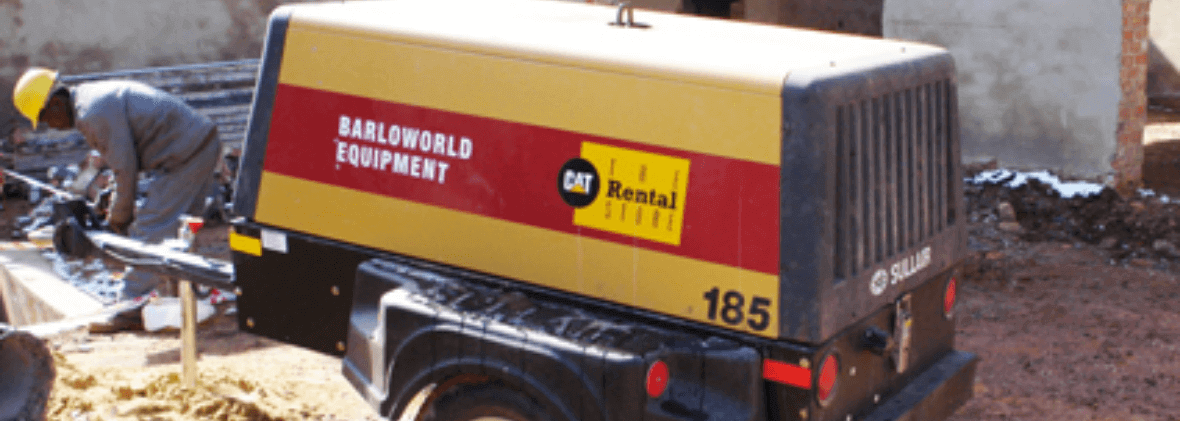
How to Choose an Air Compressor for Your Work Site: 5 Factors to Consider
Many workers at job sites use air compressors to power tools. However, with many different types and sizes of air compressors available, you should understand all the basics before deciding which is right for your circumstances. Learn more about what to consider when choosing an air compressor.
What Size Air Compressor Should You Rent?
When choosing a rental air compressor, you should always start by thinking about what you need to use it for. Consider the requirements for the tools you will be using and ensure you start your calculations with a number that exceeds those minimums. Once you do that, you can focus on these five factors that influence performance:
1. Power Supply Requirements
Your power supply needs may vary depending on the type of project you're completing and the nature of the work site. Your three options include:
- Gas-powered: If you don't have a good power source at your job site, a gas-powered air compressor is an excellent choice. However, do note that it will be loud and require ventilation during use.
- Electric: Electric air compressors are the most common types and work well for small teams and projects. They are easy to use and operate fairly quietly.
- Hydraulic: Hydraulic air compressors are less popular but still viable options. This design draws power from a vehicle or piece of equipment's hydraulic system, making it a good choice if you have a lot of hydraulics on your site.
2. Air Pressure and Delivery
These two measures are crucial because they tell you how many and the size of the tools you can use with your air compressor. Pounds per square inch (psi) is the air pressure your compressor produces. Many models have a psi that can power small or medium tools, though you can get one with more psi for larger needs.
Cubic feet per minute (cfm) is the amount of air delivered by the compressor. The lower the cfm, the smaller the tools you can power with it. If you need an air compressor for large or industrial-grade tools, aim for a cfm over 50.
3. Air Capacity
Your air compressor's capacity and tank size are crucial in performance. Construction and other work teams will likely require a large, high-pressure air compressor.
You can choose from these different types and sizes of air compressor tanks:
- Pancake
- Pontoon
- Twin stack
- Wheelbarrow
Capacity options may range anywhere between 1 and 80 gallons. For most applications, a 20-gallon tank offers sufficient capacity while still being fairly easy to store.
4. Duty Cycle
A duty cycle is the time between air delivery and refill. The larger your compressor is, the less time it needs to rest and refill before it can expel air again. You can get an air compressor with a duty cycle between 25 and 100%. The lowest on the spectrum need more time between expelling and refilling air, while the highest percentages supply air as quickly as they use it.
5. Compressor Configuration
An air compressor's configuration influences its operation and what you can use it for. Consider these five options:
- Rotary screw: Meshed rotors trap and pressurize the air in this compressor. These models tend to come at a higher cost and require more specialized maintenance.
- Piston-powered: A piston-powered air compressor has reciprocating pistons that compress the air and force it into the reservoir. They are the most popular type of air compressor.
- Scroll: Scroll air compressors use two scrolls to move air pockets into the center of the equipment. These specialized compressors are commonly used in HVAC units rather than to power pneumatic tools.
- Centrifugal: A centrifugal air compressor uses a diffuser to pressurize the air. This compressor is one of the largest types, making it suitable for manufacturing or chemical and power plants.
- Axial: Rotating airfoils create and move the pressurized air in axial compressors. These are mostly found on ships and airplanes, so they are not common to work sites.
Once you select a type of air compressor, you'll also have to decide between horizontal or vertical setups to make the best use of the space you have available.
Rent the Air Compressor You Need With The Cat® Rental Store
Now that you know how to choose a rental air compressor, The Cat® Rental Store is here to help you find the right size and type for each job. Renting is a cost-effective option that lets you try out different equipment before purchasing or source machinery for short-term needs.
Browse air equipment rentals today to get started or contact us online for more information!
Find The Cat Rental Store Near You